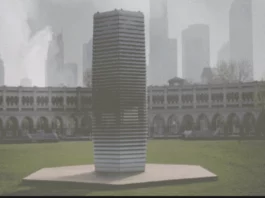Delhi-NCR Pollution: The Delhi/NCR population now most frequently has a variety of health issues, with air pollution being the main culprit. The OPD of a hospital has more health difficulties the higher the AQI. Think again if you believe that the pollution outside is just harming your lungs.
Identifying the Most Dangerous Pollutants
It has been established that PM2.5 is the most hazardous pollutant, along with carbon monoxide, nitrogen oxides, and sulphur oxides at alarmingly high levels. The air quality index (AQI) worsens and becomes dangerously unhealthy to breathe in due to the rising concentrations of these pollutants, which effectively turn the atmosphere into a gas chamber.
Particulate Matter Lingers in the Air
Because of the fog, which reduces air flow, particulate matter remains suspended in the air during the months of November and December, particularly in the mornings and nights. When car smoke, dust, and pollutants are combined, the air forms smog (smoke plus fog), which is extremely dangerous for people of all ages.
The impact of pollution on your health
- Headaches: A common complaint is moderate to severe headaches. In addition to causing nausea and dizziness in certain people, pollution can also cause migraine headaches.
- Redness in the Eyes: Redness and dryness in the eyes due to burning, frequent weeping, and itching. One of the elements that causes headaches
- Ear, Nose and Throat: As the AQI rises, exposure to toxic air can cause irritation in the nose and throat as well as sinusitis, colds, rhinitis, and sore throats.
- Heart; Blood pressure spikes brought on by pollution also exacerbate pre-existing cardiac diseases or their symptoms.
- Lungs: Long-term exposure to pollutants and breathing poisonous air can cause lung infections and illnesses, including acute bronchitis, COPD, pneumonia, and asthma.
- Stomach: A variety of gastrointestinal conditions, such as appendicitis, irritable bowel syndrome, enteric Babies get infections when they are exposed to pollutants.
- Kidneys: Chronic kidney disease, which is caused by long-term exposure to pollutants, can seriously impair renal functions.
- Liver: Pollutant concentrations that are too high can cause liver damage and hasten the inflammatory and fatty stages of liver disease (hepatitis).
Tips to keep you safe
- Consultation with a Healthcare Professional: The moment you notice any breathing difficulties or if the symptoms don’t go away, you should see a doctor.
- Wear a N95 Mask: When you go outside, you can protect your lungs by using a N95 face mask. Refrain from exercising outside when the AQI is high and avoid going outside during rush hour.
- Gargle with Lukewarm water: It gets rid of impurities that are stuck in your throat and soothes your tonsils and throat.
- Hydration is key: Consuming a lot of liquids provides the body with electrolytes and keeps the kidneys functioning.
- The Indoor AQI: Improving the quality of indoor air could be achieved by using HEPA filters or air purifiers. Certain air-purifying plants can enhance the aesthetics of your house and place of business.
- Deep Breathing Exercises: Increases lung volumes and lung capacities, which contributes to maintaining the health of the lungs.
In conclusion, air pollution can have highly negative consequences on our health, so we must do everything within our power to reduce pollution. We need to take care of our families and closely monitor any signs.
Keep watching our YouTube Channel ‘DNP INDIA’. Also, please subscribe and follow us on FACEBOOK, INSTAGRAM, and TWITTER.




